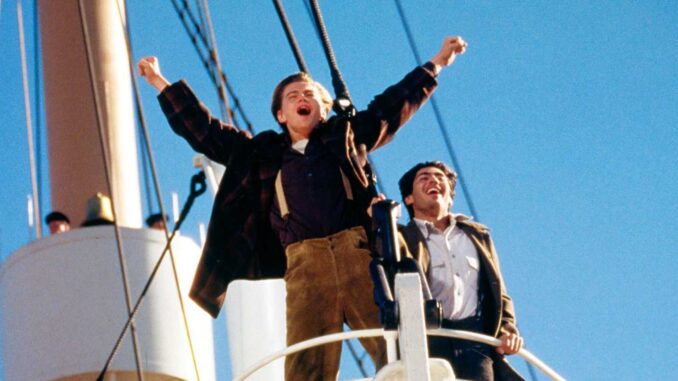
The Unsinkable Legacy: Why Titanic Was Wrongly Judged and Became a Timeless Classic
James Cameron's "Titanic" didn't just sail into theaters in 1997, it exploded onto the scene. It was a cultural phenomenon, a box-office behemoth, and a conversation starter on a scale rarely seen in cinema. Yet, amidst the roses and the Celine Dion soundtrack, a tide of backlash began to swell. Critics leveled accusations of melodrama, historical inaccuracy, and saccharine romance. However, looking back after 28 years, it's clear that this criticism was often misguided, and that "Titanic" has earned its place as a timeless classic, not in spite of its supposed flaws, but because of them.
The initial backlash was fueled by a combination of factors. The film’s immense popularity undoubtedly bred resentment. It became cool to dislike something so universally adored, a sentiment amplified by the media's relentless coverage. Critics targeted the film's perceived simplicity, dismissing the love story between Jack and Rose as predictable and cliché. They argued that the characters lacked depth and that the dialogue was heavy-handed. Furthermore, some historians took issue with the film's liberties with historical accuracy, highlighting inaccuracies in the portrayal of certain individuals and events.
However, such critiques often missed the point. "Titanic" was never intended to be a dry historical document. It was a romance, a spectacle, and a cautionary tale woven around a tragic historical event. Cameron masterfully used the romance between Jack and Rose, a poor artist and a wealthy socialite, to explore themes of class, social injustice, and the limitations of societal expectations. The love story, while arguably formulaic in its initial setup, served as a powerful engine for exploring these larger themes. Jack, with his free spirit and open heart, represented the promise of a different life for Rose, trapped within the gilded cage of her impending marriage. Their relationship, while undeniably romanticized, provided a poignant commentary on the stark realities of Edwardian society and the stifling nature of its rigid social structures.
Furthermore, the "melodrama" that critics decried was, in fact, essential to the film's impact. "Titanic" was designed to evoke a visceral emotional response, to plunge the audience into the chaos and terror of the sinking ship. Cameron achieved this through breathtaking visuals, harrowing sound design, and performances that resonated with raw emotion. The film's extended sinking sequence, meticulously researched and painstakingly recreated, remains a masterclass in cinematic tension and horror. The sheer scale of the tragedy, amplified by the film's emotional core, served as a powerful reminder of the human cost of hubris and technological overreach.
Over the years, "Titanic" has weathered the storm of initial criticism and emerged as a beloved classic for several reasons. Firstly, its technical achievements remain unparalleled. The visual effects, particularly the depiction of the sinking ship, were groundbreaking for their time and still hold up remarkably well today. The sheer scale of the production, combined with Cameron's meticulous attention to detail, created a truly immersive cinematic experience.
Secondly, "Titanic" tapped into universal themes that continue to resonate with audiences. The themes of love, loss, social injustice, and the fragility of human life are timeless and transcend cultural boundaries. While the specific context of the film is historical, the emotions it evokes are universal. The yearning for connection, the fear of death, and the struggle for survival are experiences that all human beings can relate to, regardless of their background or generation.
Finally, and perhaps most importantly, "Titanic" represents a certain kind of grand, sweeping epic that is increasingly rare in modern cinema. It's a film that embraces emotion and spectacle, unafraid to be sentimental or even melodramatic. In a world often defined by cynicism and irony, "Titanic" offers a refreshing dose of sincerity and hope. It's a reminder of the power of love and the importance of human connection, even in the face of unimaginable tragedy.
In conclusion, the initial backlash against "Titanic" was often misguided and ultimately overshadowed by the film's enduring qualities. Its technical brilliance, its exploration of universal themes, and its embrace of grand, sweeping storytelling have cemented its place as a timeless classic. While the initial wave of "Titanic-mania" may have subsided, the film's legacy continues to resonate with audiences around the world, proving that sometimes, the most enduring works of art are those that dare to embrace emotion and remind us of our shared humanity. "Titanic" may have faced its share of icy waters, but its unsinkable legacy continues to sail strong, a testament to the power of storytelling and the enduring appeal of a classic romance set against the backdrop of a devastating historical event.